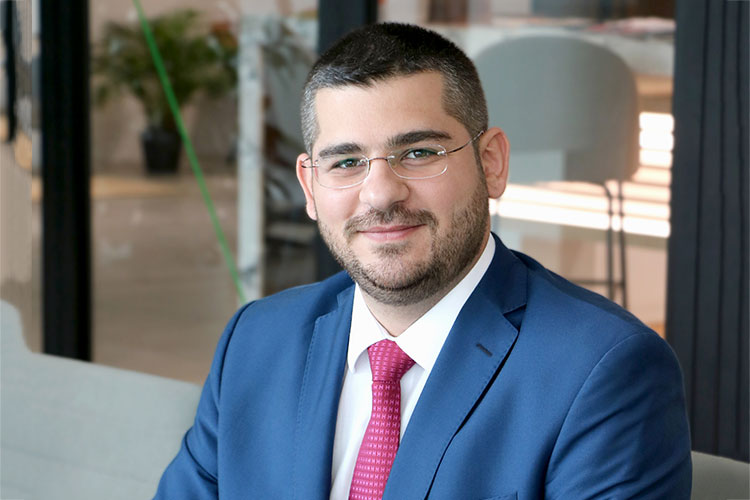

As more affluent individuals invest in Dubai's real estate, the demand for luxury living experiences grows.
June 01, 2023 | Staff Reporter | UAE | Real Estate

Dubai, the dazzling city in the United Arab Emirates, has been making headlines for its extravagant tourist attractions, opulent hotels, lavish resorts, and remarkable residential properties. The development of luxury tourism and the real estate industry in Dubai has been a fascinating journey, with several key milestones shaping its trajectory.
The turning point came in 2002 when Dubai granted non-nationals freehold rights for owning properties. This move opened the floodgates for property ownership, attracting investors and individuals from around the world. However, it was in 2007 with the establishment of the Real Estate Regulatory Authority (RERA) that the real estate market in Dubai truly took off. RERA introduced a set of standardized rules and regulations, streamlining property transactions and registrations. This brought a sense of security and transparency to the market, further boosting investor confidence.
The real estate market in Dubai experienced a setback in 2009 when it was hit by the global financial crisis, resulting in a sharp decline in property prices. Apartments, in particular, witnessed a staggering 49% drop in average prices. However, Dubai's resilience and determination to overcome challenges came to the forefront, as the government introduced the Ejari system and rent index in 2013. These initiatives provided protection and security for tenant rights, instilling trust in the market.
Following the recovery from the financial crisis, Dubai's real estate market saw a significant rebound. By 2015, average prices surpassed pre-crash levels, signaling the strength and potential of the industry. While there have been fluctuations in prices over the years, the market remained robust. Then, the COVID-19 pandemic hit, causing disruptions worldwide. However, the UAE, including Dubai, responded swiftly and effectively, implementing stringent measures to control the virus's spread.
Dubai's proactive response to the pandemic, coupled with its reputation as a safe haven, attracted individuals seeking a better quality of life amid global uncertainties. The city's efficient remote learning and working arrangements, along with its luxury offerings, lured people from various backgrounds. Consequently, the real estate market in Dubai witnessed a surge in demand, and transaction volumes reached new heights in the first quarter of 2023, with February reporting the highest figures yet.
The changing trends in the nationalities of real estate buyers in Dubai often align with global crises and major events. The COVID-19 pandemic led to an influx of Chinese businessmen and wealthy individuals seeking a more lenient environment than their home countries. Similarly, the Russia-Ukraine war prompted Russian oligarchs and millionaires to flock to the UAE, attracted by the unparalleled cash protection offered by local banks. Dubai's real estate market became a haven for those seeking capital security and tax-free living, driving the city's economic growth.
As more affluent individuals invest in Dubai's real estate, the demand for luxury living experiences grows. Visitors and residents alike come prepared to spend generously on the city's extravagant attractions, hotels, resorts, and shopping facilities. Meeting these high expectations requires continuous investment in innovative and luxurious properties. The revenue generated by property owners contributes not only to the expansion of the real estate market but also to the creation of pioneering projects that position Dubai as a leading luxury tourism destination.
However, there is a constant need to balance the demand for luxury with the desire for novelty. To avoid becoming monotonous, Dubai must redirect the wealth generated by property owners toward innovative and groundbreaking developments. By doing so, the city can remain at the forefront of luxury tourism and the real estate market. A thriving economy leads to increased funds available for government and semi-government entities to invest in the tourism and real estate industries, resulting in a cyclical pattern of growth.
In conclusion, the real estate industry has played a pivotal role in Dubai's economic diversification efforts, aiming to reduce dependence on oil and gas revenue. Luxury living has become synonymous with the lifestyle Dubai offers, and the city's real estate market acts as a pillar of this luxurious experience. The cyclical nature of luxury tourism and the real estate industry in Dubai ensures a continuous focus on expanding the economy, attracting visitors, and fostering the city's reputation as a premier luxury destination.
(Maroun Abou Harb is an Associate at BSA, a law firm founded in Dubai, with the mission of delivering top-tier legal services based on their comprehensive knowledge of local, national and international law.)